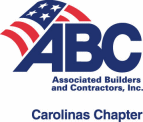 The House Committee on Mechanics’ Liens and Leasehold Improvements of the N.C. General Assembly reconvenes at 1:00 p.m. on Monday, March 3. Now that the Committee has spent its first two of four meetings considering the pros and cons of potential legislative action, the expectation is that its members will turn their focus to considering actual legislative proposals next week.
The House Committee on Mechanics’ Liens and Leasehold Improvements of the N.C. General Assembly reconvenes at 1:00 p.m. on Monday, March 3. Now that the Committee has spent its first two of four meetings considering the pros and cons of potential legislative action, the expectation is that its members will turn their focus to considering actual legislative proposals next week.
Contractors and suppliers are likely to push for legislation extending liens on leaseholds to the underlying “fee simple” ownership interest of landlords in virtually all circumstances, while commercial realty and banking interests are likely to ask the General Assembly to do nothing. You can read more about these polar opposite approaches in my previous liens-on-leasehold blog posts here and here, respectively; a white paper from the N.C. Subcontractors Alliance, Inc., embracing an expansive approach to contractor protection, can be found here.
Between these poles, might a middle ground be found?

Header for “Can I Lien That, Too?” published in Construction Lawyer, Volume 28, No. 4, Fall 2008, copyright ABA
To answer that question, I turned to a great article in the Fall 2008 edition of Construction Lawyer magazine, a quarterly publication of the ABA Forum on the Construction Industry. In “Can I Lien That, Too?,” authors David W. Zimmerman and Melissa A. Orien survey the statutes of the various jurisdictions that have specifically addressed the liens-on-leaseholds issue and summarize what they found. Beyond absolute protection and no protection, the authors identify five other approaches you should know about, listed here in descending order of the amount of statutory protection each approach provides:
(1) Landlord/record owner has knowledge of the improvement. Under this approach, the claimant’s lien for a tenant improvement will extend to the record owner’s fee simple interest if the owner has knowledge of the improvement. In Illinois, for example, a lessor knowingly permits an improvement when it has knowledge of it and an opportunity to object, but fails to do so. In California, a lessor with knowledge of an improvement can disclaim lien liability by posting a “notice of non-responsibility” at the job site, but if the terms of the lease require the improvement, the lessor’s interest in the property remains on-the-hook.
(2) Landlord/record owner provides consent to the improvement. Under this approach, mere knowledge is insufficient to establish lien rights against the record owner; affirmative consent is required. Consent is likely to be found where the lease requires the improvements; beyond that clear-cut case, the issue can get murky, and the jurisdictions vary. In Massachusetts, for example, the analysis will turn on the extent of the owner’s “consent, control and benefit;” in South Carolina, general permission to make improvements might not be enough.
(3) The tenant as an agent of the landlord/record owner. In neighboring Tennessee, courts will find the existence of a principal/agent relationship between a landlord and its tenant, sufficient to attach a lien to the record owner’s real property, if the lease agreement requires a specific improvement, the owner bears the costs of the improvement, the owner maintains control over the improvement and the improvement becomes the owner’s property at the termination of the lease.
(4) The landlord/record owner authorizes the tenant improvement in writing. New Jersey and Pennsylvania take this approach.
(5) The landlord/record owner is a party to the improvement contract. Ohio, Georgia and Texas take the approach that the landlord must be a party to the tenant improvement contract before its interest can be reached.
The takeaway?
- From full contractor protection on one end of the spectrum to doing nothing on the other end to several options in between, this blog has suggested seven potential approaches for addressing liens on leaseholds in North Carolina head-on, and you can probably think of others. Consider the approach that makes sense to you and contact your local lawmaker to ensure your voice is heard. To find out who represents you in Raleigh and how to contact them, check out the handy “Who Represents Me?” tool on the General Assembly’s website.
- If you’re a contractor contemplating the performance of tenant improvement work, be aware that your lien rights are currently limited to the project owner’s leasehold interest in the property, which is unlikely to provide you with adequate payment security. Consider seeking additional security in the form of a substantial down-payment, a personal guaranty, escrowed funds or otherwise. If no additional security is forthcoming, and your gut tells you the risk of non-payment is too great, you might want to listen to your gut, and at least consider walking away.
I’ll continue to monitor the Committee’s important work and keep you informed, perhaps chiming in at a later date on my own preferred approach to liens on leaseholds once I’ve had a bit more time to digest the various statutory options. In the meantime, don’t forget about my informal poll on this issue! Every vote counts!






